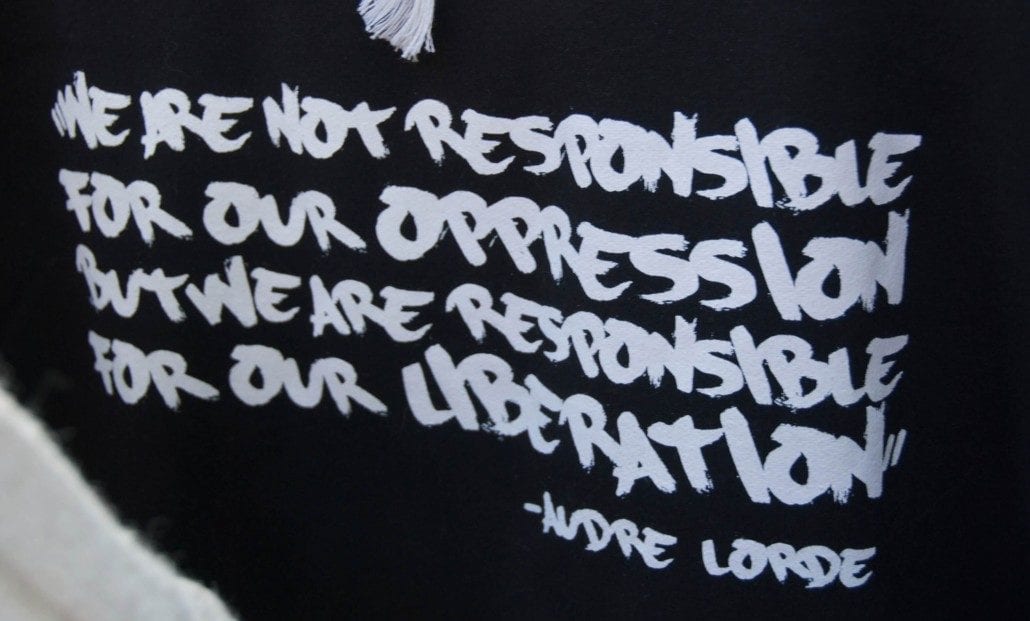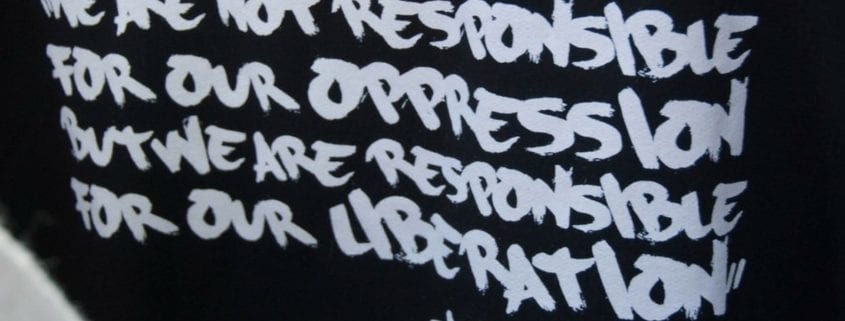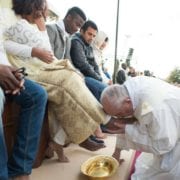Day 22: Are We Willing to Change?
BY JAMAL ADAMS | March 7, 2018
Today’s Readings

In our Ignatian tradition, the Examen gives us the opportunity to reflect on the past, the present and the future, in the case of exploring racial justice this process proves to be a very helpful framework.
The Past:
Author Jim Wallis calls racism our country’s original sin. Over the last few years, we’ve seen race at the forefront of numerous geopolitical events. In 2014, we watched the death of Michael Brown in Ferguson, Missouri become a national story, as well as the birthing of the Black Lives Matter Movement. In 2015—the massacre of nine parishioners at Mother Bethel church by radical white supremacist Dylann Roof. The next year brought a presidential campaign that was buoyed by statements of “Mexican rapists,” building a wall, and Muslim travel bans. In 2017, we watched in horror as Charlottesville, Virginia became an epicenter of hatred, violence, and chaos, while the national debate about protesting during the National Anthem further divided our country amongst race lines.
Given our national reality, we can no longer bury our head in the sand.
The Present:
It is evident that race is a most central justice challenge of our time. Those who use race to divide us want to tell us whom we can love (those we share characteristics with) and whom is the “other” and unworthy of our love and care. The future of our collective work with students and colleagues is erasing the margins that divide us and entering into relationships in which we can rejoice in our collective humanity.

The reading today exhorts us to:
“However, take care and be earnestly on your guard
not to forget the things which your own eyes have seen,
nor let them slip from your memory as long as you live,
but teach them to your children and to your children’s children.”
Much like the story of the rich man and Lazarus, we are challenged to see the Lazarus in our lives. The sin was not that the rich man was rich, but that he did not see (or chose not to see) Lazarus in his own front gate. Who are the “Lazarus” in our lives? How have we been like the rich man failing to (or not wanting to) see oppression, racial injustice, suffering? The Gospel is pushing us to see injustices as they are. Once we have identified those issues, are we working to resolve them for those that don’t have a position of power in our society? Are we teaching our children these virtues of social justice and racial harmony?
The Future:
This past fall, I had the pleasure to be in the presence of Civil Rights Icon and Representative John Lewis with a group of students and colleagues. During our time he said, “We made much progress during the Civil Rights Era, but there are forces that are working to take us back.” How do we fight these forces? It begins with us engaging in an honest discussion about race. Are willing to be uncomfortable, fight through subjects and topics that limit our engagement and most importantly—are we willing to change?
Jamal Adams is the principal at La Salle College Preparatory School in Pasadena, California. Prior to joining the Lasallian community, Adams served Loyola High School of Los Angeles as its director of equity and inclusion and director of faculty. As director of equity and inclusion, he instituted programs and projects that centered on deepening a culture of belonging on campus across affinity groups, with parents-guardians and other stakeholders from the community. He is the co-author of an essay “Teaching as a Practice Rooted in Black Brotherhood,” featured in an anthology entitled Teaching Black: The Craft of Teaching on Black Life and Literature (University of Pittsburgh Press, 2020). In addition to his publication, he is the co-host of a podcast, Just Conversations: Race, Faith, and Catholic Education, sponsored by the Ignatian Solidarity Network.










Much more needs to be accomplished in race relations. As a 64 yr old white middle class Catholic/ American from Cleveland, I have seen the worst ( redlined neighborhoods, the Hough riots of the 60’s; segregation within our church). I believe I am seeing the best today.
Is there room for ( dramatic) improvement? Yes, and I hope within my lifetime. I suggest the next areas of reform require a ‘deeper dive’. The existing educational system fails The majority of minority students. Adequate career training to meet the needs of today’s economy needs to be revised. Personal commitment and responsibility needs to be preached and supported by the Church.
A more complete educated base; trained to meet today’s opportunities and supported by the Church in both moral and personal discipline will enhance race relations regardless of outside naysayers.
Change is a positive sign. Change is growth for the better.